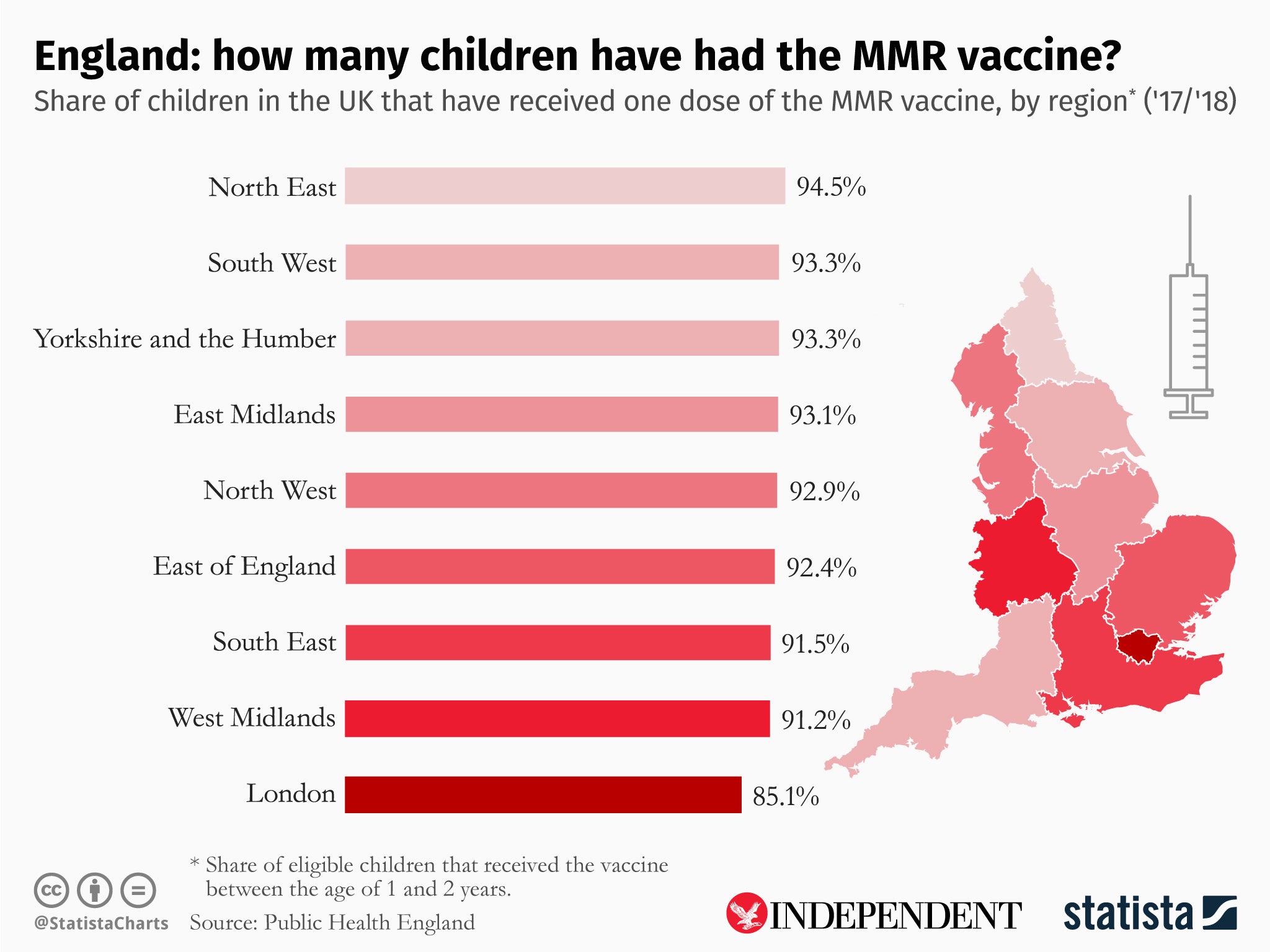MMR vaccine does not cause autism, study of over 650,000 children finds
Experts hope new study will help inform 'fact-resistant world'
Your support helps us to tell the story
From reproductive rights to climate change to Big Tech, The Independent is on the ground when the story is developing. Whether it's investigating the financials of Elon Musk's pro-Trump PAC or producing our latest documentary, 'The A Word', which shines a light on the American women fighting for reproductive rights, we know how important it is to parse out the facts from the messaging.
At such a critical moment in US history, we need reporters on the ground. Your donation allows us to keep sending journalists to speak to both sides of the story.
The Independent is trusted by Americans across the entire political spectrum. And unlike many other quality news outlets, we choose not to lock Americans out of our reporting and analysis with paywalls. We believe quality journalism should be available to everyone, paid for by those who can afford it.
Your support makes all the difference.A huge new study has become the latest research to confirm the measles, mumps and rubella vaccine does not cause autism, despite continued warnings by anti-vaccination advocates.
Data from more than 650,000 children showed there was no link between the MMR jab and the developmental problem, which affects how people communicate and interact.
The findings by a Danish team were intended to reassure the growing number of people making the unfounded link between vaccines and conditions including autism.
They come after a 30 per cent rise in the number of measles cases being reported, which the World Health Organisation has attributed in part to parents shunning vaccines.
Alongside pandemics, climate change and HIV, WHO listed so-called “anti-vax” ideas as one of the biggest threats to global health in 2019.
While vaccines themselves come with minimal risk, measles is a highly infectious disease that can sometimes cause seizures, brain inflammation and even death.
MMR vaccines are distributed free to all children on the NHS, and yet the number of children receiving them in the UK each year has been falling.
Doubts about the vaccine were initially sparked by the discredited former physician Andrew Wakefield, who published a since retracted paper suggesting a link between MMR and autism in 1998.
Despite being thoroughly disproved, this theory has helped fuel a rise in measles outbreaks from the US to Europe in recent years as anti-vaxxer parents refuse to vaccinate their children.
“Parents should not skip the vaccine out of fear for autism,” lead study author Dr Anders Hviid of the Statens Serum Institut told Reuters.
“The dangers of not vaccinating includes a resurgence in measles which we are seeing signs of today in the form of outbreaks.”
In their study, the team – which had previously undertaken one of the first studies to discredit Mr Wakefield’s ideas – followed up their cohort of children until some of them were 14.
Around 1 per cent of the children developed autism, but there was no significant different in rates of autism between those who had the jab and those that did not.
This was even the case among children at higher risk of autism due to having a sibling that already had the condition.
They published their findings in the Annals of Internal Medicine.

In a piece written to accompany the study, Dr Saad Omer and Dr Inci Yildirim from Emory University said it was worth carrying out such extensive research to hammer home the truth about vaccines and autism.
They lamented the current situation, where conspiracy theories spreading online had led to a “fact-resistant world”.
“In an ideal world, vaccine safety research would be conducted only to evaluate scientifically grounded hypotheses, not in response to the conspiracy du jour,” they wrote.
“In reality, hypotheses propagated by vaccine sceptics can affect public confidence in vaccines.”

Join our commenting forum
Join thought-provoking conversations, follow other Independent readers and see their replies
Comments